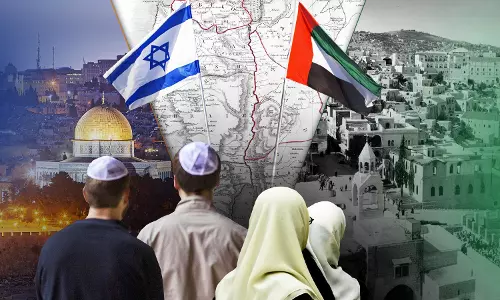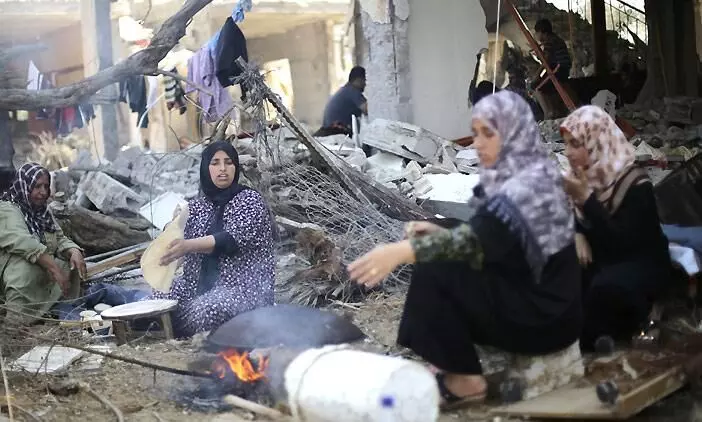
US says reoccupation of Gaza is not good for Israeli people
text_fieldsWashington: The White House has issued a strong warning to Israel concerning the potential reoccupation of Gaza, as Israeli Prime Minister Benjamin Netanyahu suggested that Israel might take on long-term security responsibilities in the region after the current conflict.
The caution comes amidst discussions about what a post-conflict Gaza should look like and how it should be governed.
White House National Security Council spokesman John Kirby voiced the U.S. stance, stating that "the president still believes that a reoccupation of Gaza by Israeli forces is not good. It's not good for Israel; it's not good for the Israeli people."
This warning follows Netanyahu's recent statement that Gaza should be governed by those who do not follow the path of Hamas. He also implied that Israel may need to shoulder the overall security responsibility for an indefinite period to avoid the consequences of not doing so.
This view appears to diverge from that of the United States, including President Joe Biden's own statements regarding the future of Gaza. In an interview with CBS' "60 Minutes," Biden stressed that Israel occupying Gaza would be a "big mistake." Israeli Ambassador to the United States, Michael Herzog, also clarified that Israel does not intend to occupy Gaza after the conflict ends.
Sharp differences have been emerging between the U.S. and Israel as the conflict continues.
U.S. Secretary of State Antony Blinken urged Israel for a "humanitarian pause" to facilitate the safe exit of hostages and civilians from Gaza, as well as the delivery of aid to Palestinians. However, his request was met with resistance by Netanyahu. Despite Blinken's call to prevent civilian suffering due to Hamas' actions, Israeli forces continued to target civilian sites, arguing that these sites were being used by Hamas.
A senior adviser to Israeli Prime Minister Netanyahu, Mark Regev, emphasised that Israel's post-war plan is not an "ongoing occupation" of Gaza.
He clarified the need to distinguish between a security presence and political control. Israel aims to ensure that a resurgent terrorist element or Hamas does not emerge after the conflict ends. Regev outlined the importance of establishing new frameworks where Gazans can govern themselves, with international support for Gaza's reconstruction.
In the course of the conflict, Israeli airstrikes have caused significant casualties in Gaza, with more than 10,000 people killed and over 25,000 injured, according to the Gaza Health Ministry. While these figures could not be independently verified, Pentagon spokesman Brig. Gen. Patrick S. Ryder acknowledged that "we know the numbers are in the thousands."
In recent discussions, President Biden and Prime Minister Netanyahu addressed the urgent need to accelerate humanitarian assistance to Gaza and the importance of implementing pauses in the ongoing fighting. The White House has expressed condolences and solidarity with the thousands of innocent Palestinians who have lost their lives, been injured, or wounded during the conflict since October 7.
























